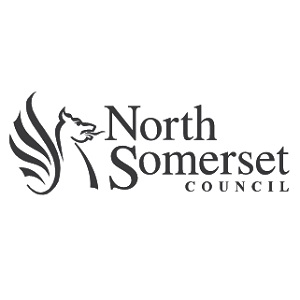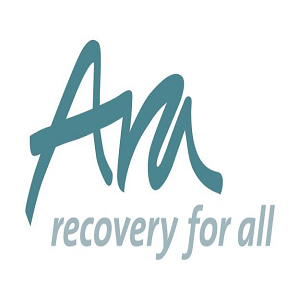Drug & Alcohol Rehab in Weston-super-Mare

How Does Rehab Work?
Rehab involves the support services and therapies that people who have drug and alcohol addiction receive to overcome addiction and subsequent relapse. Once a medical assessment and detox are completed, individuals will start addiction treatment in the form of therapy. Treatment is made up of therapy from a professional counsellor, the attendance of group meetings as with a 12 Step programme, and the option of inpatient or outpatient rehabilitation. residential rehab services require that clients live at the residence or centre for the duration of therapy. Outpatients will attend therapy by counselling or meetings but will not stay at the facility. Consultation with a medical expert and an individual assessment will help see whether inpatient or outpatient services are suited to your needs.
What Happens During Residential Rehab?
Taking the brave step towards recovery starts with rehabilitation. It is a process, and it takes time but with dedication and support relapse can be prevented. If you’re unsure about what rehab entails, we provide a breakdown of what to expect.
Rehabilitation from addiction starts with a professional medical evaluation. This evaluation or assessment helps the professional decide which treatment option is most suited to your circumstances. Therapy differs from one person to the next depending on the history of drug or alcohol use and the presence of comorbidities (such as bipolar).
Detox is an important phase of a recovery programme. It involves the safe removal of drugs and/or alcohol from the body. When detox is done with medical supervision, withdrawal symptoms can be monitored, and its severity managed. This can significantly improve the odds of success and minimise relapse.
Rehabilitation includes meeting with a therapist for private & group sessions, participation in skill-building activities as with an inpatient or residential rehab, or group meetings that are common with outpatient 12 Step programmes. We explore the different phases of rehab in further detail.
1. Assessment

For any person entering rehabilitation, a medical assessment will be provided. It is a normal procedure meant to put your mind at ease as the specialist looks for specific behaviours, previous mental health problems, and overall health. In a residential programme, it is normal to have an admissions screening done by telephone before booking you into treatment. Phone assessments allow the treatment centre to determine the right programme for your needs. It will also provide staff with information to customise support services during detoxification.
When you’re ready to pursue treatment for drug and alcohol addiction, a medical assessment must be completed. Assessments will guide therapy because it provides staff with the information, they need to develop a tailored treatment plan or advise on the appropriate intervention.
2. Detox

Detox will be completed before therapy commences. It is often performed in a private facility where individuals can receive round-the-clock care to reduce withdrawal symptoms.
Detox is necessary where substance misuse and dependency are present. It should be managed by experienced and knowledgeable medical staff to limit uncomfortable and severe withdrawal symptoms. For those who go through withdrawal symptoms, there is a higher risk of relapsing if not managed within a rehab clinic. In a residential setting, qualified staff may offer medical treatment to minimise uncomfortable withdrawal. The approach for therapy, once detoxification is completed, is determined by the medical assessment.
3. Therapy

Therapy begins when the body is rid of substances including alcohol. The choice of being assigned to an inpatient or an outpatient service will depend on the individual assessment, budget, and life commitments. Therapy that is offered in treatment ranges from individual counselling with a therapist, the attendance of group therapy, and emphasis on building positive coping mechanisms and life skills.
Step by Step Process for Residential Rehab
To understand your medical and mental health history.
Arrange a suitable date to begin your journey to recovery.
Begin the managed withdrawal process from substances including alcohol.
To understand the root cause of addiction and how to overcome it.
Aftercare is provided to help manage the risk of relapse.
To help heal the wounds that addictive behaviour has caused others.
Find your Nearest Rehab Centre near Weston-super-Mare
The nearest rehab centre is Turning Point | Somerset Drug & Alcohol Service (SDAS).
Address: Turning Point | Somerset Drug & Alcohol Service (SDAS), Unity House, 10 Canon St, Taunton TA1 1SN
Call 0333 4444 432 to discuss your alcohol or drug rehab requirements and any other questions you may have about the process of residential rehab.
Outpatient Addiction Services in Weston-super-Mare
To better understand which type of treatment will guide you in your journey to overcoming dependence, it is important to understand the pros and cons of outpatient and residential rehabilitation. Outpatient care can be very useful as it offers a flexible and cost-effective alternative to inpatient treatment.
An outpatient service requires that clients attend weekly therapy sessions. You can remain at home and visit the therapist, counsellor, or group leader to attend sessions. It also allows one to continue to work and attend to family commitments while receiving support and intervention.
Private Outpatient programmes involve therapy with counselling sessions provided by a therapist/counsellor. Sessions typically last up to 90 minutes. Free addiction treatment does exist through one of the many reputable charities in the UK (Turning Point), but it does not provide the same individualised care that private services provide.
NHS Free addiction services in Weston-super-Mare

North Somerset District Council, Town Hall, Walliscote Grove Rd, Weston-Super-Mare BS23 1UJ
Website
31 Alexandra Parade Weston-super-Mare Somerset BS23 1QZ
WebsiteThe Benefits of Outpatient Services
A private outpatient programme is tailored to address the individual needs of those struggling with addiction. The aim is to deliver a quality standard of therapy and introduce those struggling to the coping strategies they need to prevent relapse. – outpatient programmes are also considered because it allows individuals to remain employed or to tend to their family while receiving help. – Such support services are more affordable compared with residential programmes.
The Challenges of Outpatient Services
Because one remains at home and vulnerable to the same triggers, there is a higher risk of relapse and failure to complete the outpatient programme. Although the NHS and other UK-based charities provide free addiction services, treatment is not tailored to the individual’s needs and waiting lists are to be expected.

How Much Does Rehab Services Cost in Weston-super-Mare?
Residential drug and alcohol rehabilitation can typically cost around £1500- £4000 per week. Private addiction treatment within a residential centre may not be financially viable for everyone. However, charity based and government organisations deliver free or low cost services that those struggling with addiction can get help from.
Fortunately, free programmes are offered by organisations including the NHS and charities such as Turning Point (that requires self-referrals). Other organisations that offer free and community-based programmes for drug and alcohol addiction include Alcoholics Anonymous (AA), Cocaine Anonymous, and Narcotics Anonymous.
Support Groups in Weston-super-Mare

Weston-Super-Mare: Step & Traditions
1st Flr, Emmanuel Church Hall, Oxford St. BS23 1TN

Weston-Super-Mare 12 Steps Rotational Shares Online
Emmanuel Church Hall, Oxford St BS23 1TN

Weston-Super-Mare Language Of The Heart
Emmanuel Church Hall, Oxford St. BS23 1TN
The Pros and Cons of Seeking Treatment in Your Local Area
Pros
1. You are familiar with the area which may provide a layer of comfort/safety.
2. Family or friends can easily travel to visit or are close by.
3. You could save on the costs of travelling long distances for treatment, or free services may only be offered in your home town.
Cons
1. A local environment means access to drug dealers or other triggers. This is more of an issue if you decide upon outpatient programmes.
2. Not considering locations outside your local area could mean missed opportunity for more valuable and rewarding programmes.
3. Addiction treatment programmes that are close by don’t always provide the best standard of treatment.
If you are unsure of how to look for a rehab service you can trust, consider the CQC. The CQC website offers listings of rehabilitation services and organisations that are ranked according to the standard of its services.
